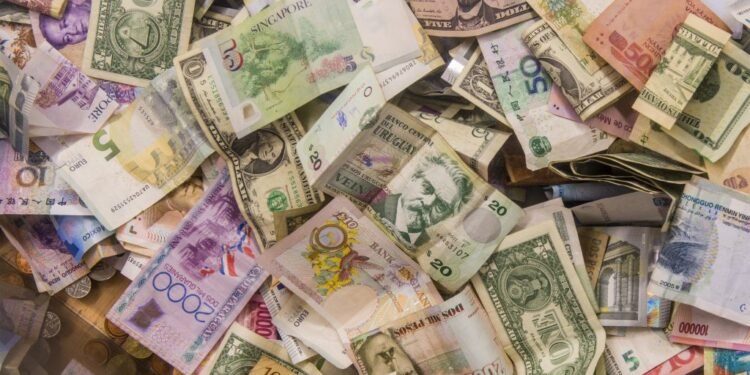The number of Chinese-made electric cars going to Europe has soared in recent months, prompting the European Union to earlier this week announce an investigation into whether those vehicles are being unfairly subsidised.
The probe follows similar dives in the past into products such as paper, steel, solar panels and electric bicycles, and may well lead to tariffs on exports of cars from Chiniese automakers like BYD, Nio, XPeng, or even US EV giant Tesla, which exports cars to Europe from its gigafactory in Shanghai.
ADVERTISEMENT
CONTINUE READING BELOW

But just how does China subsidise its electric car sector and to what extent?
Essentially, subsidies and support for any industry in China are usually a mix of payments and benefits at local, provincial and national levels. It’s almost impossible to get a complete picture of how much is being paid, however even an incomplete accounting shows the benefits can be extensive, ranging from preferential treatment such as cheap land or capital to policies that outright exclude foreign competitors.
1. Tax breaks
Perhaps the largest quantifiable financial aid are tax breaks when buying an electric car. Almost all EVs sold in China are exempt from a vehicle purchase tax, making them more affordable for drivers, which then boosts overall consumer demand and revenue for automakers.
China’s central government has spent around $57 billion to support the purchase of electric cars between 2016 and 2022, according to consultancy AlixPartners. That’s about five times what the US government spent over the same period and doesn’t include incentives from provincial and local governments.
Beijing originally cut taxes in 2009 for EVs and then began exempting them entirely from the vehicle purchase tax in 2014. It had planned to reinstate the levy at the end of last year but recently extended the exemption to 2027 to support both the industry and the economy, which is slowing. From 2009 to 2022, China gave about $30 billion in tax exemptions, according to BloombergNEF, and may waive some $97 billion more through 2027.
In addition, most EV makers are deemed high-tech companies and so pay a lower corporate income tax rate of 15% compared to the standard 25%, according to Bloomberg Intelligence analyst Joanna Chen. Car exports are also exempt from a 13% value-added tax, she said.
2. Production subsidies
The Ministry of Industry and Information Technology (MIIT) pays car companies subsidies based on the number of EVs they produce. Through the end of last year, it had paid almost 39 billion yuan ($5.4 billion) to subsidize the production of around 3.76 million new-energy vehicles, according to Bloomberg calculations based on MIIT’s latest subsidy review. About 31 billion yuan of that was paid just last year to 49 eligible car companies, with BYD getting the most, followed by Tesla.
Such subsidies have helped keep domestic sales of EVs growing even as sales of petrol-powered cars have fallen. The subsidies are only available for electric cars or plug-in hybrids that are made in China using Chinese batteries, meaning that until Tesla opened its factory in Shanghai in 2019, it couldn’t take advantage of them.
It’s similar to the purchase subsidies the US plans to provide through Biden’s Inflation Reduction Act.
3. Cheap land, loans and grants
As the EV industry took off in China, governments at all levels provided cheap loans, land and grants to companies to try and boost their local economies. The city of Hefei and related funds bought a 24% stake in Nio in 2020 for 7 billion yuan, while funds connected to the Hangzhou city government invested 3 billion yuan in Zhejiang LeapMotor Technologies Ltd. in a pre-IPO funding round in 2021.
ADVERTISEMENT
CONTINUE READING BELOW
Beijing has also helped pay for the roll-out of charging infrastructure across China, with the country’s economic planning agency pledging to subsidize public chargers to meet demand from over 20 million new-energy vehicles by the end of 2025. The Ministry of Finance has spent almost 20 billion yuan to promote electric vehicles, including subsidizing charging infrastructure, according to its latest review.
This is a similar strategy to the US, where Congress in July set aside $7.5 billion to fund electric vehicle charging stations. The US Department of Transportation has also funded charging stations.
4. R&D help
Research and development subsidies are paid mainly at the provincial or local level, and include special grants for key technologies and development of new-energy vehicles and core parts. They’re paid for new model development, rebates for equipment procurement, and tax incentives.
For example, Hunan province (where BYD has a factory and a number of its suppliers are based) in January said it will provide a 5-million-yuan subsidy for the development of a new passenger vehicle model, or 1.5 million yuan for a different type of new-energy vehicle model. It will also grant a maximum of 50 million yuan for automakers that set up an R&D center in the province with a total investment of 200 million yuan.
5. Bulk purchasing
China’s EV sector has also got a boost from government procurement, with cities across the nation buying fleets of domestically produced electric buses and cars, which again has provided a steady revenue stream for Chinese manufacturers.
“Through a combination of central government subsidies, directives and local government entrepreneurship, demand for EVs in public or state-controlled fleets, including SOEs, grew significantly,” a report last year on Chinese government subsidies by the Center for Strategic and International Studies found.
According to the report, BYD, which counted Warren Buffett’s Berkshire Hathaway Inc. as an early backer, was one of the main beneficiaries of these policies considering it produces both electric cars and buses.
© 2023 Bloomberg









